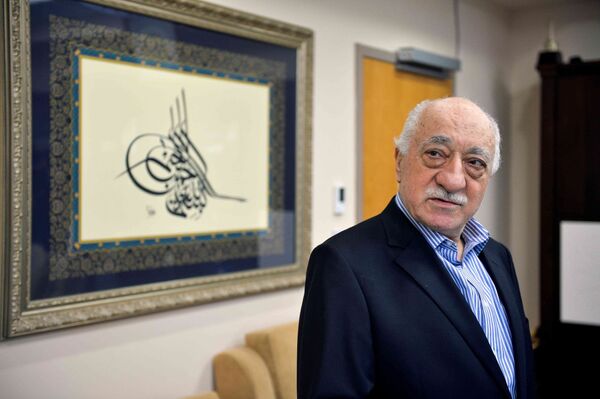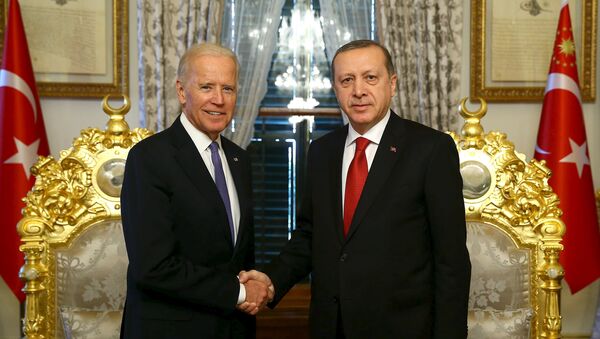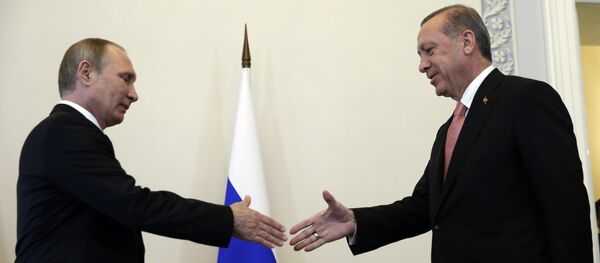Gulen, the inspiration behind the Gulen movement — now branded FETO (Fetuallah Gulen Terrorist Organization) by Turkey — initially supported Erdogan ahead of him becoming elected in 2014. However, the two fell out over a massive corruption scandal in 2013 that cost the country US$100 billion. Erdogan accused Gulen of being behind the corruption investigations. The cleric fled to Philadelphia where he lives in exile.
Washington has acknowledged the extradition request, but say the papers from Ankara are not in connection with the failed coup.
"We can confirm now that Turkey has requested the extradition of Mr. Gulen but I wouldn't characterize the request as relating to the coup attempt. In fact, they don't relate to the 2016 attempted coup. I don't other have further details to provide other than that," State Department spokesperson Mark Toner said.
Biden's visit comes at a time of considerable strain between Washington and Ankara. Turkey is a NATO member and the US is reliant on its airbases — principally Incirlik, in southern Turkey — which provide important strategic locations for US Middle East airstrikes.

Since the failed coup, Erdogan has rounded up many Gulen supporters, including hundreds of the military, police, the judiciary and civil servants.
This has led to tensions between the European Union and Turkey over the migrant deal to relocate "irregular migrants" — those denied asylum — from Greece back to Turkey. As part of the deal, Turks would get visa-free access to the Schengen zone within Europe as well as Turkey's accession into the EU being accelerated.
Many in Brussels are now saying Erdogan's roundup of those he blames for the coup, as well as his clampdown on the opposition and the media make it highly unlikely Turkey passes the basic tests of the rule of law and democracy, which are at the heart of the EU, putting the whole deal at risk and potentially leading to a new wave of migrants crossing from Turkey to Europe.
Syria Shift
However, there is a glimmer of hope in the fact that — following Erdogan's meeting with Russian President Vladimir Putin in St. Petersburg, early August — Ankara has shifted its position over Syrian President Bashir al-Assad. Previously, Erdogan had refused to negotiate with Assad over the future of Syria, following the end of the civil war and the overthrow of Daesh.
However, Turkish Prime Minister Binali Yildirim said in a statement, August 20:
"Assad does not appear to be someone who can bring (Syrians) together… [but that]… there may be talks [with Assad] for the transition."
This week, I'll travel to Ankara to underscore America's solidarity with the Turkish people in the wake of tragic attacks and coup attempt.
— Vice President Biden (@VP) August 22, 2016
Biden — who is the first leading western statesman to visit Ankara since the failed coup — and Erdogan will have much to discuss over delicate issues, but Washington cannot afford to put further strains on a NATO partner and a strategic partner in the fight against Daesh. Gulen's extradition will be a diplomatic dilemma.



